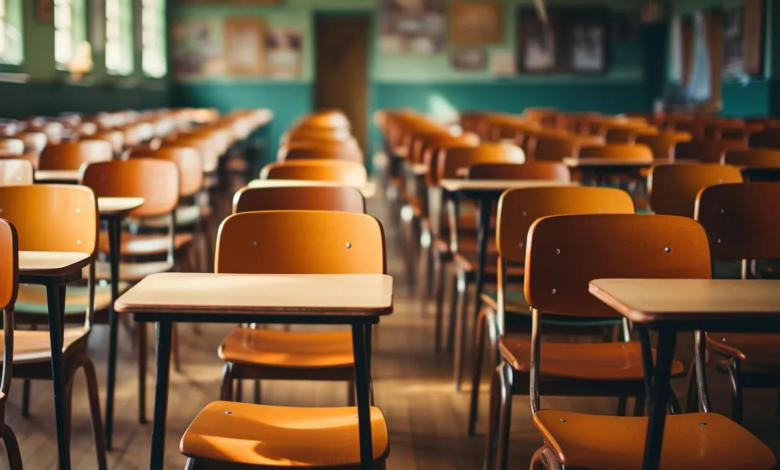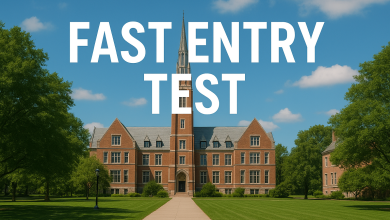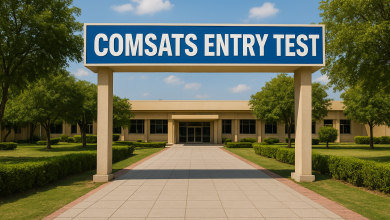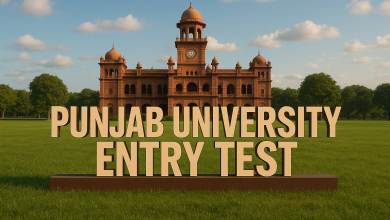Navigating Primary Education in Pakistan: A Comprehensive Guide

Introduction
Primary education is the foundational building block of a child’s academic journey. In Pakistan, it plays a crucial role in shaping young minds and preparing them for the challenges and opportunities that lie ahead. In this discussion, we’ll explore the world of primary education in Pakistan, providing a comprehensive understanding of its key features, challenges, and significance.
Primary Education: An Overview
Primary education in Pakistan plays a fundamental role in shaping the intellectual and social development of young learners. This phase typically covers the initial five years of a child’s academic journey, commencing from grade one and extending through grade five. It acts as a cornerstone upon which a child’s educational edifice is constructed, preparing them for more advanced studies while fostering their personal growth.
The Structure of Primary Education
The structure of primary education in Pakistan can be further dissected into two primary segments:
Elementary Education: Fostering Fundamental Knowledge
The elementary education phase, spanning from grade one to grade eight, acts as the bedrock of a student’s academic journey. It is during these crucial years that young learners are introduced to a diverse range of subjects, including Urdu, English, Mathematics, Science, and Social Studies. The primary goal of elementary education is not just to fill minds with facts but to nurture a holistic understanding of the world. By providing a well-rounded education, this phase lays a strong foundation for higher learning, encouraging students to become curious, critical thinkers who are ready to explore the wider realm of knowledge.
Middle School Education: Nurturing Specialized Skills
Once students successfully complete their elementary education, they embark on the journey through middle school, typically encompassing grades six to eight. Middle school marks a transition to a more specialized curriculum, where students delve deeper into specific subjects. These include advanced mathematics, in-depth scientific explorations, intensive social studies with a focus on history and geography, and further language studies. Middle school equips students with not only knowledge but also the critical skills necessary for more advanced studies, enabling them to thrive in high school and beyond. This phase is where students begin to identify their areas of interest and develop the skills that will shape their academic and career pathways.
Importance of Primary Education
The significance of this phase cannot be overstated. Here’s why it holds a special place in Pakistan’s educational fabric:
1. Shaping Academic Foundations: Primary education equips young learners with fundamental skills in Urdu, English, Mathematics, Science, and Social Studies. These skills form the bedrock for more advanced learning.
2. Fostering Critical Thinking: It’s during these early years that children develop critical thinking and problem-solving abilities. They learn to question, analyze, and innovate.
3. Instilling Values: Primary education in Pakistan goes beyond academics; it instills values such as discipline, respect for diversity, and a sense of social responsibility.
4. Promoting Gender Equality: In a country where gender disparities have been a concern, primary education is a critical tool for promoting gender equality and girls’ education.
5. A Gateway to Opportunities: It paves the way for secondary and higher education, unlocking a world of opportunities for personal and professional growth.
Primary Education and the Pakistani Society
In the context of Pakistan, primary education transcends academics. It’s a powerful force for social change and development. It promotes cultural awareness, tolerance, and the appreciation of diverse perspectives. These qualities are essential for a harmonious and progressive society.
Challenges and the Way Forward
Pakistan’s primary education sector faces various challenges, including access, quality, and resource allocation. Many remote areas lack proper schools, hindering access and enrollment. Insufficient infrastructure and resources impact the quality of education. Gender disparities in education persist, with girls facing greater obstacles to access and retention.
Out of School Children: A Pervasive Educational Challenge
The issue of out-of-school children is a critical concern in the realm of education, both in Pakistan and globally. It represents a substantial barrier to achieving universal access to quality education and leaves countless children without the opportunities they deserve.
The Scale of the Problem
The numbers are staggering. Pakistan is home to one of the world’s largest populations of out-of-school children. The reasons behind this issue are multifaceted, including poverty, gender disparities, lack of infrastructure, and the enduring effects of conflicts and natural disasters in various regions of the country.
Impact on Society
The consequences of having a large population of out-of-school children are far-reaching. It perpetuates the cycle of poverty, limits economic growth, and exacerbates social inequalities. Without access to education, these children are denied the chance to reach their full potential, leaving them ill-equipped to escape the cycle of poverty and contribute to the development of their communities and the nation as a whole.
Gender Disparities
One of the most concerning aspects of this issue is the gender gap in access to education. Girls are disproportionately affected by the out-of-school crisis. Gender norms, early marriages, and cultural factors often conspire to keep girls out of school, denying them the chance to pursue their dreams and aspirations.
Addressing the Challenge
Efforts are being made by the Pakistani government, as well as various non-governmental organizations and international bodies, to address the problem of out-of-school children. Initiatives such as stipends for female students, the establishment of more schools, and awareness campaigns are helping to mitigate the issue. However, a sustained and concerted effort is needed to truly make a difference.
Conclusion
Primary education in Pakistan is a vital phase in a child’s educational journey. While challenges persist, efforts are being made to enhance access and quality. Recognizing the importance of primary education is the first step towards ensuring that every child in Pakistan has the opportunity to learn, grow, and thrive. It’s an investment in a brighter future for the country.




Thank you for your sharing. I am worried that I lack creative ideas. It is your article that makes me full of hope. Thank you. But, I have a question, can you help me?